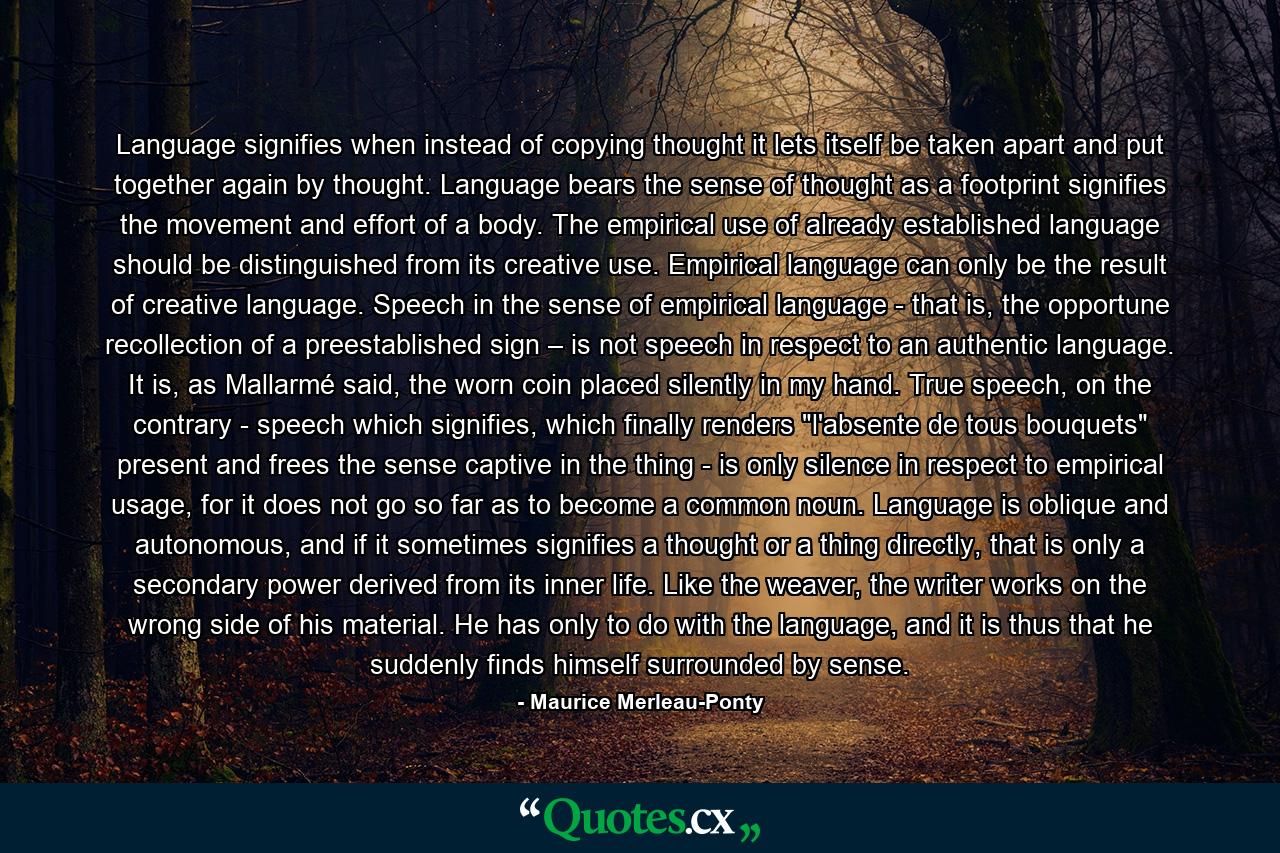Language signifies when instead of copying thought it lets itself be taken apart and put together again by thought. Language bears the sense of thought as a footprint signifies the movement and effort of a body. The empirical use of already established language should be distinguished from its creative use. Empirical language can only be the result of creative language. Speech in the sense of empirical language – that is, the opportune recollection of a preestablished sign – is not speech in respect to an authentic language. It is, as Mallarmé said, the worn coin placed silently in my hand. True speech, on the contrary – speech which signifies, which finally renders “l’absente de tous bouquets” present and frees the sense captive in the thing – is only silence in respect to empirical usage, for it does not go so far as to become a common noun. Language is oblique and autonomous, and if it sometimes signifies a thought or a thing directly, that is only a secondary power derived from its inner life. Like the weaver, the writer works on the wrong side of his material. He has only to do with the language, and it is thus that he suddenly finds himself surrounded by sense.
